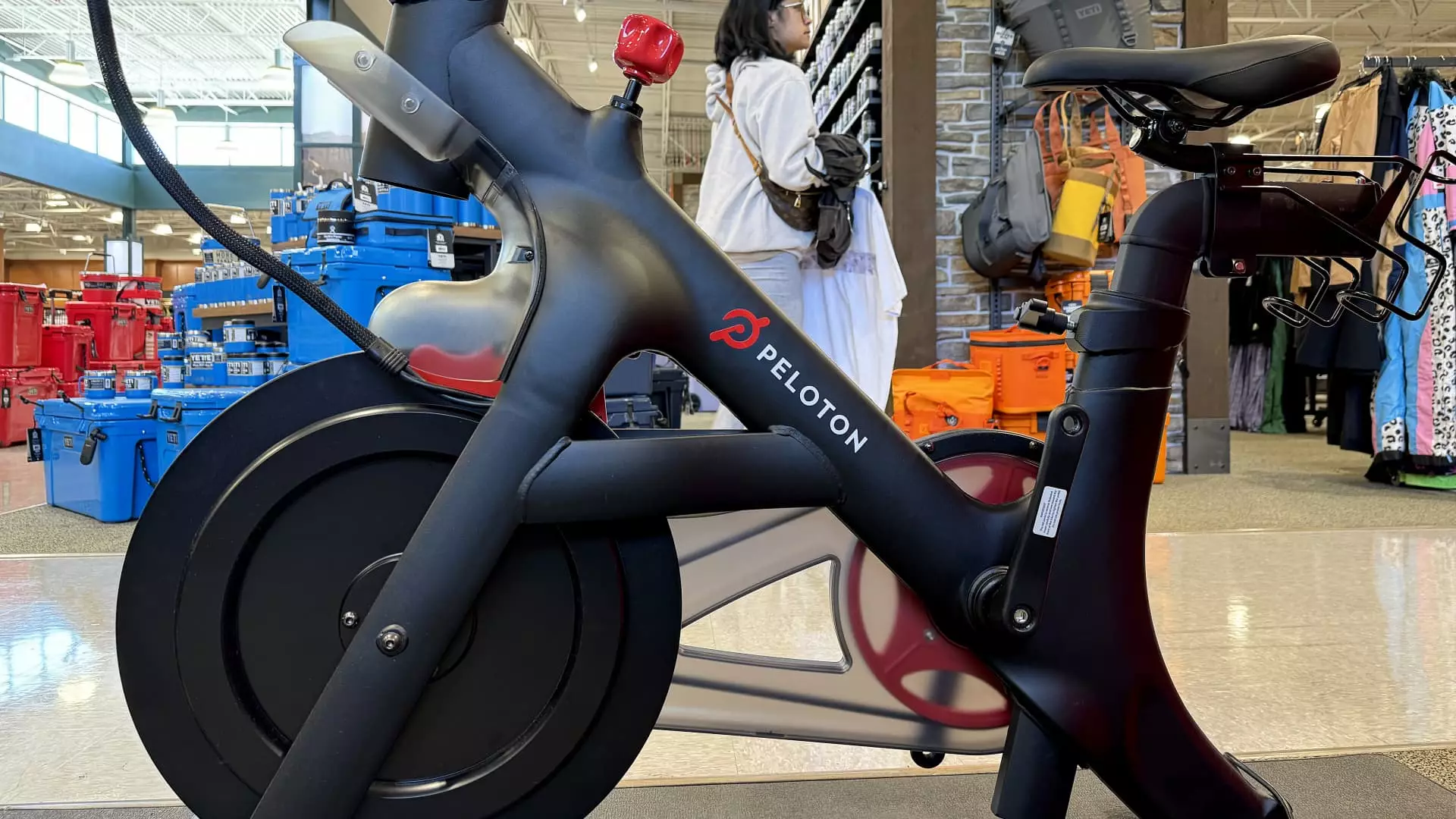In an increasingly sustainable world, the concept of reusing and recycling has never been more crucial. Peloton’s recent initiative to launch its resale marketplace, aptly named Repowered, is an exciting response to this demand. With many of their premium fitness products resting neglected in homes, Peloton aims to inject life back into these machines while enabling members to profit from their redundant equipment. This move not only signifies Peloton’s agility in adapting to market trends but also revels in the potential to create a community centered around fitness and wellness. The potential for users to sell their unused bikes and treadmills, with the assistance of a generative AI tool, speaks to both innovation and user empowerment.
Dissecting the Revenue Model: Peloton’s Financial Strategy
What stands out in this new venture is Peloton’s strategic financial approach. By allowing sellers to retain 70% of their sales price, they strike a balance of motivation for sellers and income for the company. The added incentive of discounts on new equipment sweetens the pot further. It showcases how Peloton is not just a fitness machine manufacturer; they are positioning themselves as an ecosystem for their members. Their generous profit-sharing plan is a calculated gamble to foster loyalty among users while simultaneously enticing new customers—despite the fact that pricing involves input from an AI tool, preserving a human element of control for sellers.
Yet, underlying this innovative surface, one must ponder the sustainability of such a system. Will users still find value in the experience of selling or buying? One can argue that this marketplace arrangement, while well-intended, could fall short if the user base does not genuinely engage with the platform. As the purchase of fitness equipment can be a very personal decision, the emphasis on convenience must not overshadow the importance of ensuring authentic connections between sellers and buyers.
Marketplace Competition: Realigning the Digital Battlefield
Peloton’s Repowered is more than a simple venture into resale; it is a direct challenge to existing marketplaces such as Facebook Marketplace and the younger startup Trade My Stuff. The entry of Repowered into this competitive landscape is not merely about selling used equipment—it’s about redefining the online fitness marketplace experience. By offering something more streamlined, safer, and more localized than a broader marketplace, Peloton potentially fills a gap that could sway users from general curiosity to actual participation.
However, this begs the question of its differentiation. In a market teeming with resale opportunities, can Repowered hold its own? Peloton’s collaboration with the platform provider Archive lays a solid foundation, yet there is skepticism around whether it can cultivate a loyal community. Unlike platforms where anonymity often reigns, Repowered aims for a trust-based community. The success of this initiative will hinge on how effectively Peloton can navigate the logistics of delivering equipment and managing user interactions.
A Cultural Shift in Fitness Consumption
While the entrepreneurial enthusiasm surrounding Repowered is tangible, it is essential to address the underlying culture surrounding fitness equipment ownership. The narrative of fitness machines merely contributing to clutter is a pervasive one. People purchase these high-end products with visions of transformation; yet many succumb to the trap of subscription fatigue and lackluster engagement. The colorful marketing that surrounded Peloton’s initial surge in popularity ironically birthed a culture of disillusionment.
With Repowered, Peloton is implicitly recognizing this phenomenon. This initiative allows users not only to re-engage with the equipment but also encourages mindset shifts toward sustainability and shared ownership. It’s a nod to more responsible consumer behavior, promoting the idea that fitness should not merely be a transaction but a communal experience. Despite this optimistic outlook, however, the success of this cultural pivot requires active involvement from both buyers and sellers—ironically unearthing the question of whether the very fitness culture Peloton is trying to mend is ready for such evolution.
The Path Ahead: Navigating Potential Pitfalls
While Peloton’s foray into resale markets appears ambitious and timely, one must remain cognizant of potential pitfalls. The user experience must be impeccable to foster participation and trust. Furthermore, sustainability in the marketplace must involve not only physical transactions but also an ongoing conversation around fitness-related user-generated content. If Peloton can effectively engage both buyers and sellers, they may very well manipulate the tide of the fitness market—redefining the relationship individuals have with their equipment and ultimately fostering a more community-driven approach to fitness. The success of Repowered will rely on more than just transactional success; it will hinge on Peloton’s ability to reshape fitness culture itself.


Leave a Reply